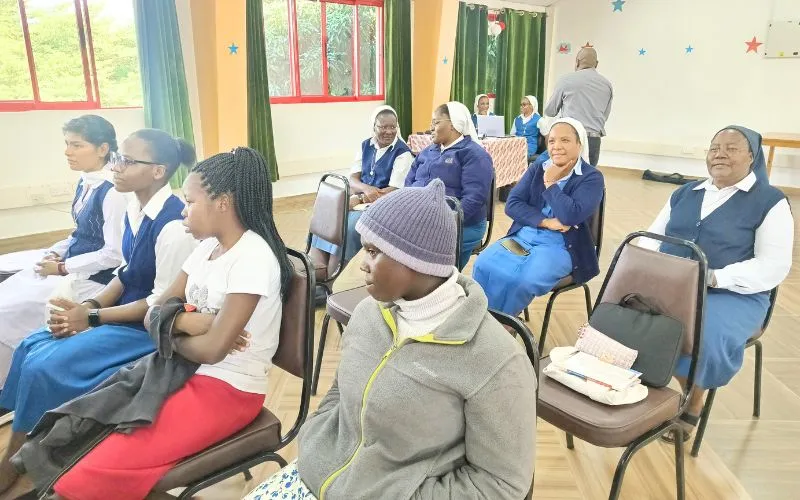 Credit: ACI Africa
Credit: ACI Africa
“A leader is a person who has their feet on the ground and their head in the clouds,” he said, and as a second value, added, “A leader is a person who forms leaders while leading. Every leader must be known and tested by the formation of leaders.”
Fr. Mubangizi also highlighted leaders’ ability to avoid discouragement as another guiding value alongside that of always looking “forward to an uncertain future” and being “able to lead the team almost to an unknown destination.”
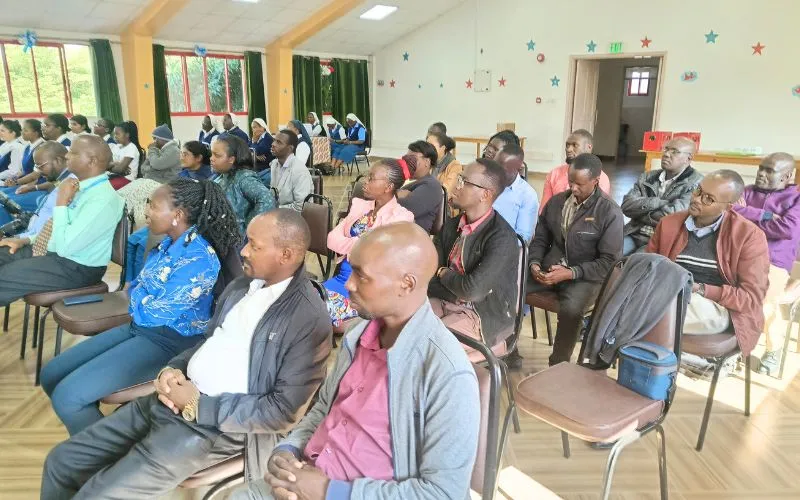 Credit: ACI Africa
Credit: ACI Africa
He also highlighted resilience as a vitally important quality of successful leaders, as well as discernment, and explained, “When you are making a decision, you go through a very complicated, tedious process of reflection on how to decide what to do.”
(Story continues below)
In the Africa edition 12-chapter book launched on July 23, Fr. Mubangizi said, the author indicates that the secret to achieving discernment is “a kind of spiritual technology”, which cannot be found in “any technical books and manuals on leadership.”
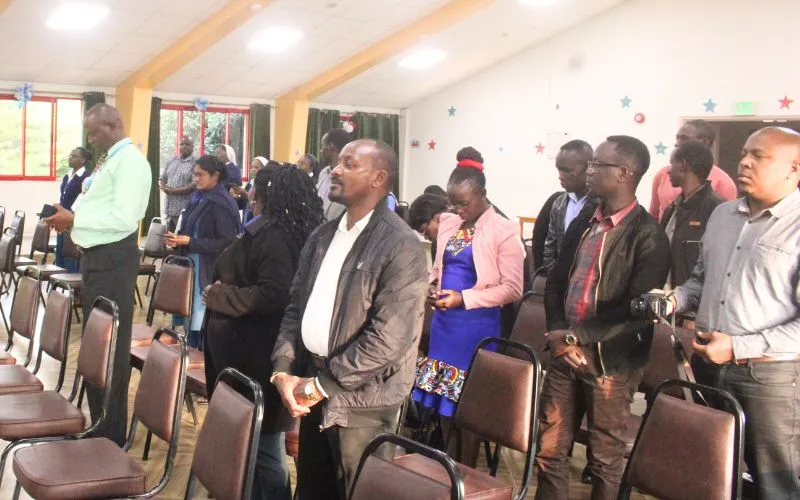 Credit: ACI Africa
Credit: ACI Africa
The Proposed Hekima University, he went on to say, is supposed to be a “living embodiment of an institution that is going to take into account this new paradigm of leadership.”
“Some of you or most of you know about Hekima University College, which has been a constituent college for over 40 years, training men and women, but largely training Jesuits, who have become superiors and heads of institutions,” Fr. Mubangizi said.
“The time has come that we should move to the next level and set up an institution of higher learning, a full-fledged university that will take up these values you are talking about today to the next level,” he said.
The Deputy Director and Director of Academic Affairs of the proposed Jesuit institution of higher learning in Kenya said that the decision for establishing the institution was based on gaps in the education system that had been observed.
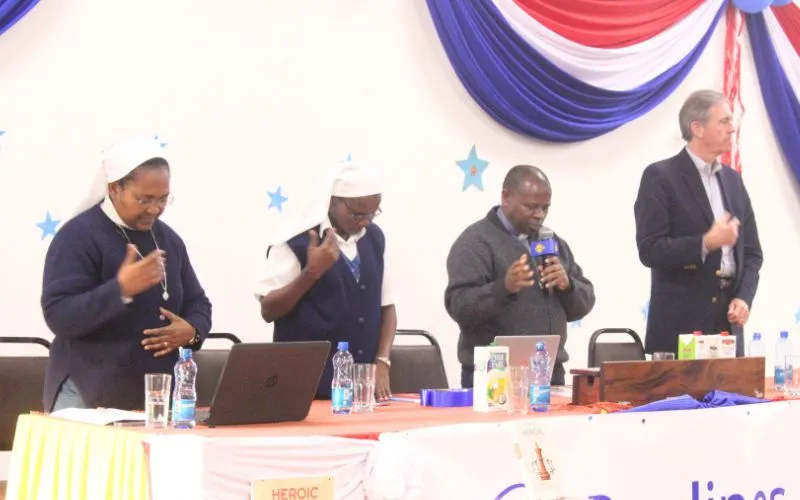 Credit: ACI Africa
Credit: ACI Africa
“We discovered that there are so many institutions and universities across Kenya and Eastern Africa. However, the graduates, as soon as they come out, are moving all over the streets with their CVs in their hands for years looking for employment,” the Ugandan Jesuit Priest said.
He added, “We concluded that our educational system is dysfunctional. You cannot spend four years in school, six years and when you come out with the resources you spend, you cannot get employed.”
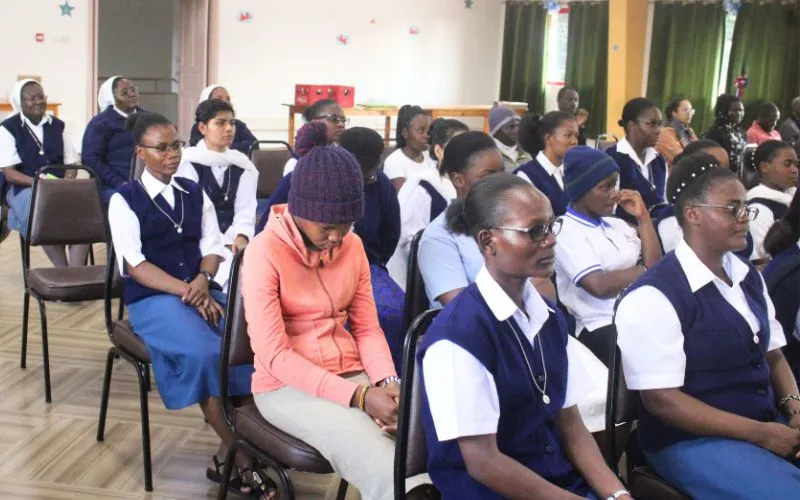 Credit: ACI Africa
Credit: ACI Africa
“We started with the vision to form men and women who can spur greater transformation, ethical leaders who are capable of creating jobs, not job seekers,” Fr. Mubangizi said.
Leadership, he went on to say, “must be shown in education, in Church, in the civil society, in our families, and in our communities because everybody is a leader.”
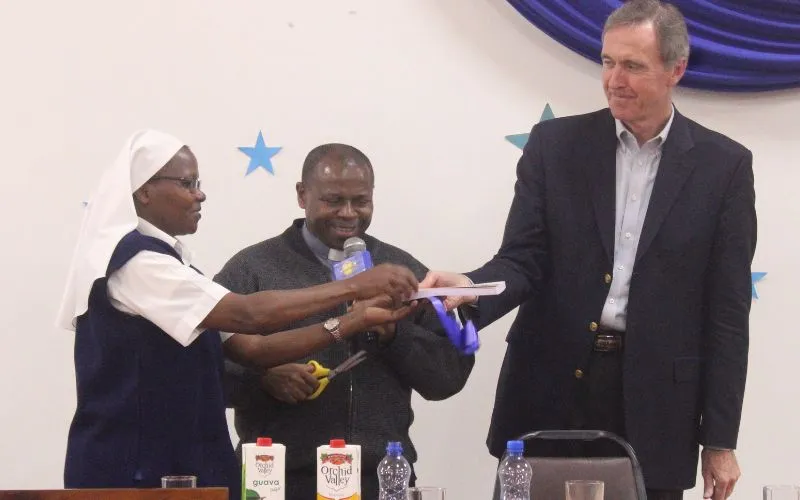 Chris Lowney (right), Fr. Odomaro Mubangizi (center), and Sr. Rosemary Mwaiwa (left). Credit: ACI Africa
Chris Lowney (right), Fr. Odomaro Mubangizi (center), and Sr. Rosemary Mwaiwa (left). Credit: ACI Africa
“The message this book is passing on to young and old, regardless of which generation you belong to is that we are all born to lead,” Fr. Mubangizi said referring to Chris Lowney’s publication gives insights into “four foundational pillars that characterize great leaders: Self-awareness, ingenuity, heroism, and love.”
The book that goes for US$15.00 is available at Pauline bookshops in Nairobi and Kisumu and in soft copy at www.paulinesafrica.org.
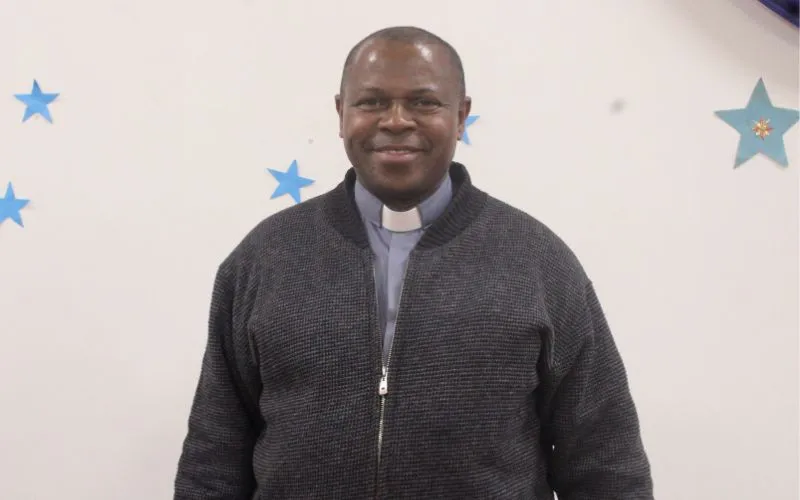 Fr. Odomaro Mubangizi. Credit: ACI Africa
Fr. Odomaro Mubangizi. Credit: ACI Africa


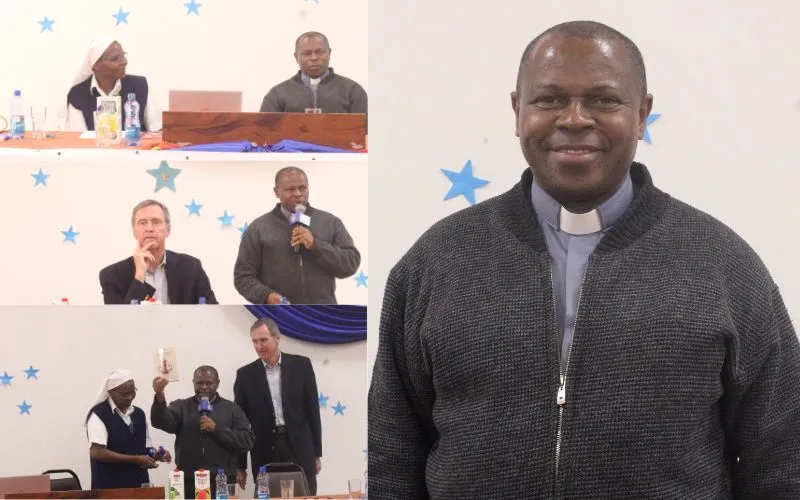
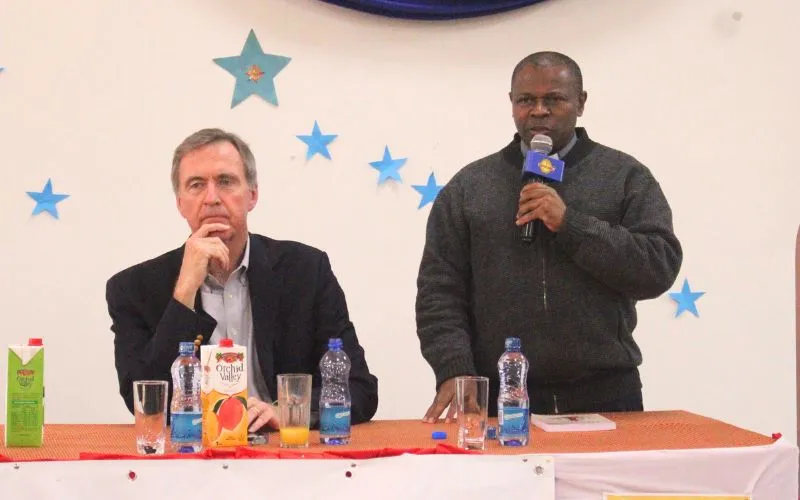 Credit: ACI Africa
Credit: ACI Africa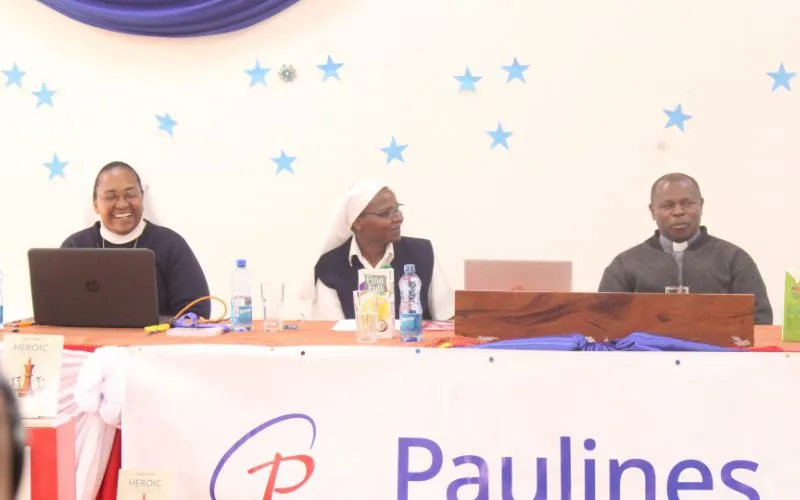 Credit: ACI Africa
Credit: ACI Africa 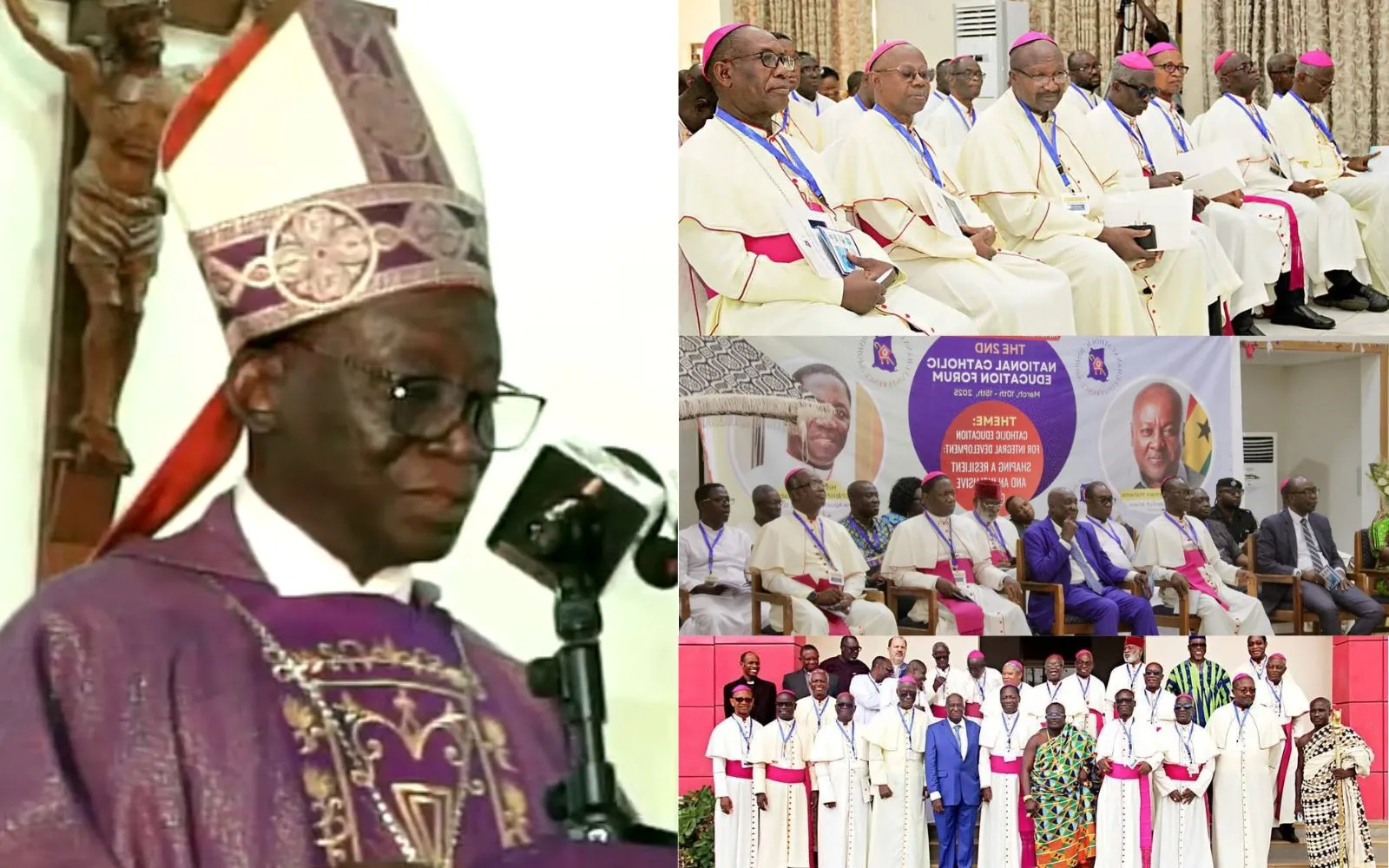
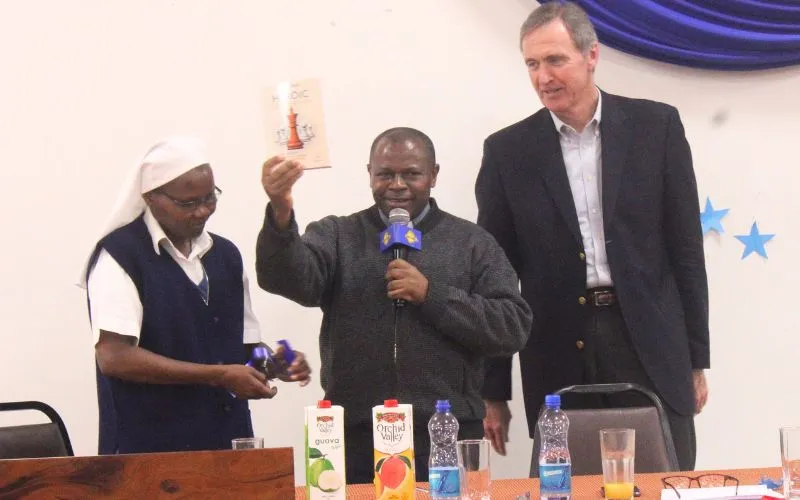 Credit: ACI Africa
Credit: ACI Africa Credit: ACI Africa
Credit: ACI Africa Credit: ACI Africa
Credit: ACI Africa Credit: ACI Africa
Credit: ACI Africa Credit: ACI Africa
Credit: ACI Africa Credit: ACI Africa
Credit: ACI Africa Chris Lowney (right), Fr. Odomaro Mubangizi (center), and Sr. Rosemary Mwaiwa (left). Credit: ACI Africa
Chris Lowney (right), Fr. Odomaro Mubangizi (center), and Sr. Rosemary Mwaiwa (left). Credit: ACI Africa


